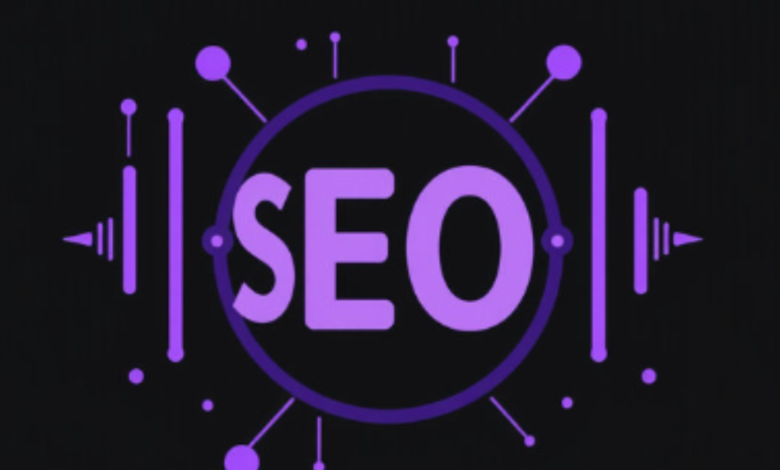What is SEO?1 A Comprehensive Guide for Beginners

Have you ever searched for something on Google and wondered why some websites appear at the top while others are buried on later pages? The answer lies in SEO (Search Engine Optimization).
SEO is the process of optimizing a website to rank higher on search engines like Google, Bing, and Yahoo. It helps websites get more organic traffic, which means more visitors without having to pay for ads.Guide
If you’re a business owner, blogger, or website owner, SEO can help you attract more customers, grow your brand, and increase revenue. In this beginner-friendly guide, we’ll explain everything you need to know about SEO and how to start optimizing your website today!
Understanding How Search Engines Work
Before diving into SEO strategies, it’s important to understand how search engines work.
🔍 Search engines follow a three-step process:
- Crawling: Search engines use bots (also called “spiders” or “crawlers”) to scan and discover new pages on the internet.
- Indexing: Once a page is crawled, it gets added to Google’s database (index), making it eligible to appear in search results.
- Ranking: Google ranks web pages based on relevance, quality, and user experience to determine which ones appear first.
Google’s algorithm evaluates over 200 ranking factors, including content quality, keywords, backlinks, mobile-friendliness, and page speed.
The Three Main Types of SEO
SEO is divided into three main categories:
1. On-Page SEO (Optimizing website content)
✔ Keyword research
✔ Writing high-quality, SEO-friendly content
✔ Optimizing meta titles, descriptions, and URLs
✔ Internal linking and structuring content properly
2. Off-Page SEO (Building website authority)
✔ Getting backlinks from trusted websites
✔ Guest blogging and content marketing
✔ Social media engagement and brand mentions
3. Technical SEO (Improving website performance)
✔ Mobile-friendly design
✔ Fast website loading speed
✔ Using HTTPS for security
✔ Structured data for better indexing
Each type of SEO plays a role in helping your website rank higher on Google.
On-Page SEO: Optimizing Your Website for Search Engines
1. Keyword Research
Finding the right keywords is the foundation of SEO. Use tools like:
- Google Keyword Planner
- Ahrefs
- SEMrush
Choose keywords with high search volume and low competition for the best results.
2. Writing SEO-Friendly Content
- Use your main keyword in the title, headings, and naturally throughout the content.
- Write long-form, valuable content (Google prefers articles with 1,500+ words).
- Break content into headings, bullet points, and short paragraphs for readability.
3. Optimizing Meta Titles and Descriptions
- Keep title tags under 60 characters.
- Write meta descriptions that encourage people to click.
Example:
✅ Good Title: “Best SEO Tips for Beginners – Boost Your Rankings Fast”
❌ Bad Title: “SEO Tips” (Too vague and not engaging)
Off-Page SEO: Building Authority and Trust
Google ranks websites based on authority and trust, which comes from quality backlinks.
🔗 How to Build Backlinks:
✔ Guest posting on reputable websites.
✔ Getting featured in industry-related directories.
✔ Creating shareable content (infographics, in-depth guides).
Avoid buying backlinks as Google can penalize websites for spammy links.
Technical SEO: Ensuring a Smooth User Experience
Key Technical SEO Factors:
✔ Mobile-Friendliness: Websites must be responsive and easy to navigate on phones.
✔ Website Speed: Pages should load in under 3 seconds for better rankings.
✔ Secure Website (HTTPS): Having an SSL certificate improves trust.
✔ Schema Markup: Helps search engines understand content better.
Use tools like Google PageSpeed Insights to check your website’s performance.
How Long Does SEO Take to Show Results?
SEO is a long-term investment. It usually takes 3-6 months to see significant improvements. Factors like competition, content quality, and backlinks affect how fast your website ranks.
Conclusion
SEO is one of the most powerful digital marketing strategies that helps websites get more traffic organically. By optimizing content, technical factors, and backlinks, you can rank higher on search engines and grow your online presence.
Start applying these SEO basics today, and over time, you’ll see your website rise in search rankings!
Frequently Asked Questions (FAQs)
1. What is the easiest way to start with SEO?
Start by optimizing your content with relevant keywords and improving your website’s loading speed.
2. Is SEO free or does it require investment?
Basic SEO is free, but paid tools like Ahrefs, SEMrush, or hiring an SEO expert can improve results.



